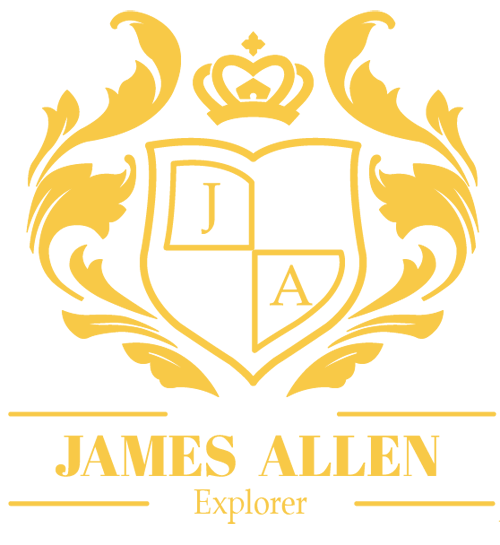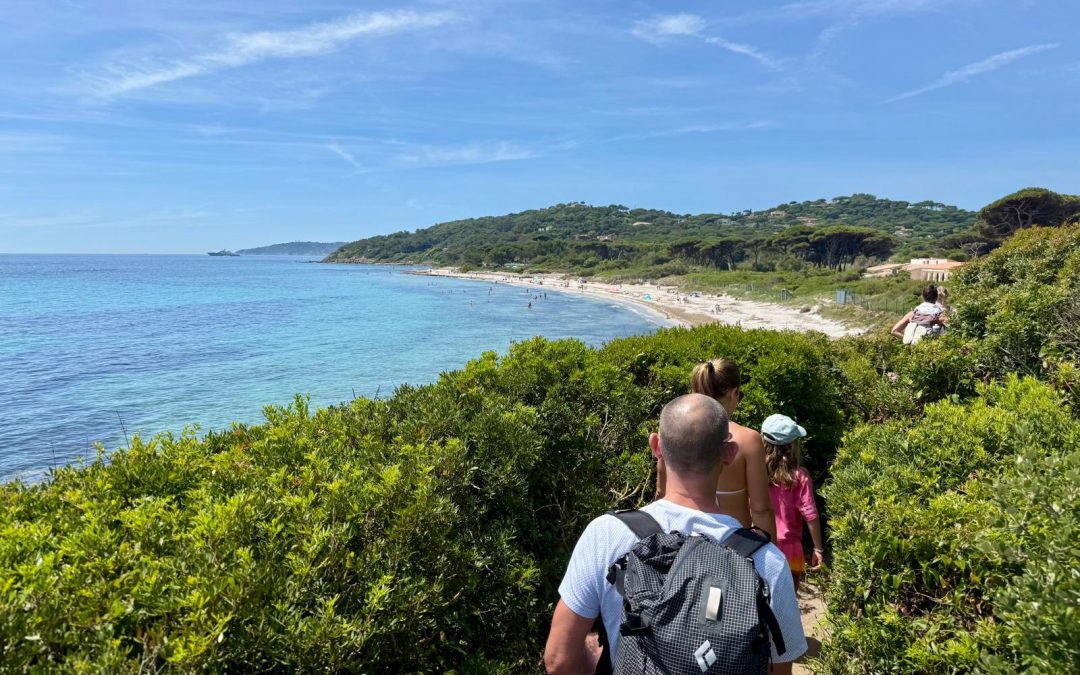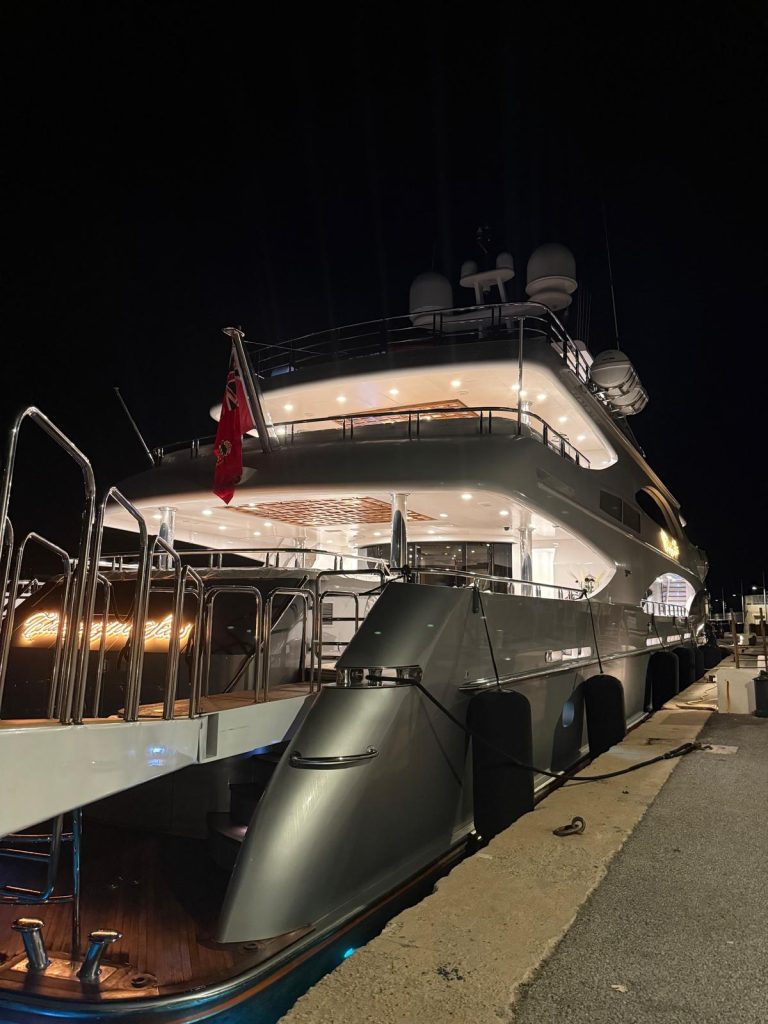The salty breeze still clung to my clothes as I stepped off the boat in Cannes, carrying with me the warmth, generosity, and gentle chaos of a week that had redefined my understanding of family, legacy, and joy. Jay’s words echoed in my head—“Would you be the Director of Adventure for our family?”—a role that didn’t exist until they imagined it, and now seemed to fit my soul better than anything I could have scripted.
But before answering life’s big questions, I needed to see an old friend.
Craig had survived a brain tumour, and when my North Pole expedition was cancelled two years before, I’d visited him in hospital. It had been confronting. But now, two years on, I found him flourishing—not just in health, but in spirit. He’d let go of his start up dream, returned to consultancy, and not just survived, but soared. IBM had made him one of their global senior partners. The brain cancer, he told me, had taught him to set hard boundaries, to protect his time, to live fully.
As we drove into the Swiss Alps, he turned to me and said, “You know, I never thought I’d buy one chalet—now I have two.”
We pulled up to his newly acquired flat perched high above Lake Geneva, its tiled balcony spilling sunlight onto wildflowers and distant, snow-dusted peaks. The air smelled of pine resin and melting snow. We drank coffee looking out over the ski fields, and he shared how he’d placed a lowball offer on a second, bigger place—one he couldn’t afford two years ago—and it had been accepted. Life, he said, sometimes rewards clarity and courage.
And then it hit me. A decade earlier, I’d dreamed of having a business I could run remotely—one that would let me live in Europe for a season or two with the kids. Now here was that very possibility: a chalet in Switzerland, cheaper than my rent in Australia, with Craig offering to rent it to me once renovations were done. Maybe this is where the next chapter begins?
We hiked to a place called the Japanese Garden—a secret alpine glade laced with streams, wildflowers bursting in every colour, and a stillness that felt sacred. I stripped down and dove into the icy stream. Kids laughed on the banks. Birds whirled in the blue. For a moment, everything was alive and in harmony.
But Craig had to fly to India for work, so I continued alone, down to Lake Geneva. And from there, I followed my instinct—not a plan. A bus headed for Chamonix called to me, but it was packed with tourists and felt a bit too polished. I stayed on and crossed into Italy.
Turin.
At first glance, it felt… odd. Heavy. Charged. The city had a strange duality. I wandered its squares and back alleys, slowly realising this was no ordinary European city. Turin, I learned, sits at the convergence of mystical energy lines. It is known as the apex of both white magic and black magic in Europe—the only city that’s part of both spiritual triangles.
One triangle connects Turin to Lyon and Prague—cities of light and divine architecture. The other, to London and San Francisco—cities whispered to hold the secrets of the underworld. The hotel I’d booked was the oldest in Turin. Napoleon had slept there. Mozart too. My room—baroque painted walls, creaky floorboards, no modern distractions—cost the same as a hostel bed.
By day, I walked Turin’s esoteric trail: black marble angels with wings folded inward, shrines with upside-down pentagrams hidden beneath public fountains, and cathedrals blazing with golden domes of light. The battle between good and evil wasn’t just symbolic here—it was sculpted into the city’s soul.
And in that tension, I found a new lens. Wealth, power, influence—they weren’t evil in themselves. It was how we used them. Whether we cloaked ourselves in secrecy, or offered our lives in service. This city was teaching me that duality lives in us all.
Eventually, I caught a night bus back to Nice, arriving late to a hostel buzzing with energy. Just as I checked in, a pub crawl spilled through the door—accents, laughter, and the invitation: “You joining us?” Why not?
With only a few hours before my 7 a.m. flight, I let loose in the winding streets of the French Riviera. We moved from pub to pub, danced with strangers, and swapped stories with engineers, artists, and wide-eyed travellers. I wasn’t drinking much—just enough to stay in the moment. It felt good to move, to laugh, to jump around and feel the freedom of being myself.
One of the conversations that night stuck with me. I met a young Brazilian delegate heading to the World Ocean Summit in Nice. She spoke about microplastics, whales, and Brazil’s environmental agenda with a sense of urgency. We connected over our shared love for the ocean and the need for real action. I introduced her to people who could support her mission. We’ve stayed in touch since.
It made me wonder on the flight home—after all these months of moving through the world—what kind of influence I really want to have. I’ve walked through deserts and danced beneath city lights. Maybe it’s time to turn those steps into something larger.
As the plane rose over the Mediterranean, I wasn’t just reflecting on memories.
I was sketching new maps.
“La montagne ne se vante pas de sa hauteur, pourtant elle touche le ciel.” “The mountain does not boast of its height, yet it touches the sky.” (Savoyard Proverb, French Alps)
Reflection: Real strength is quiet. Like a mountain, meaningful impact doesn’t need attention to be powerful.
| Action: Do something good this week without seeking credit. Quiet actions can create lasting ripples. | ||


